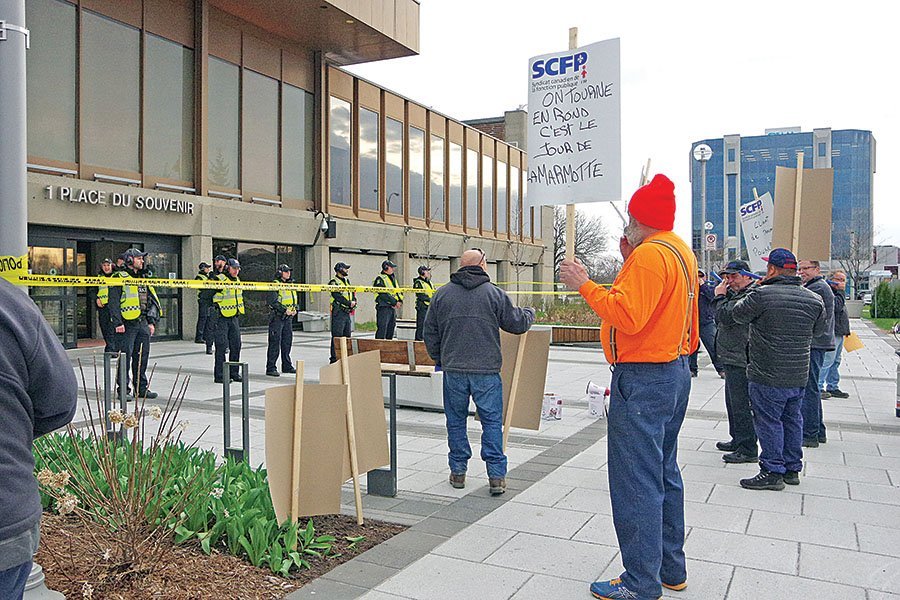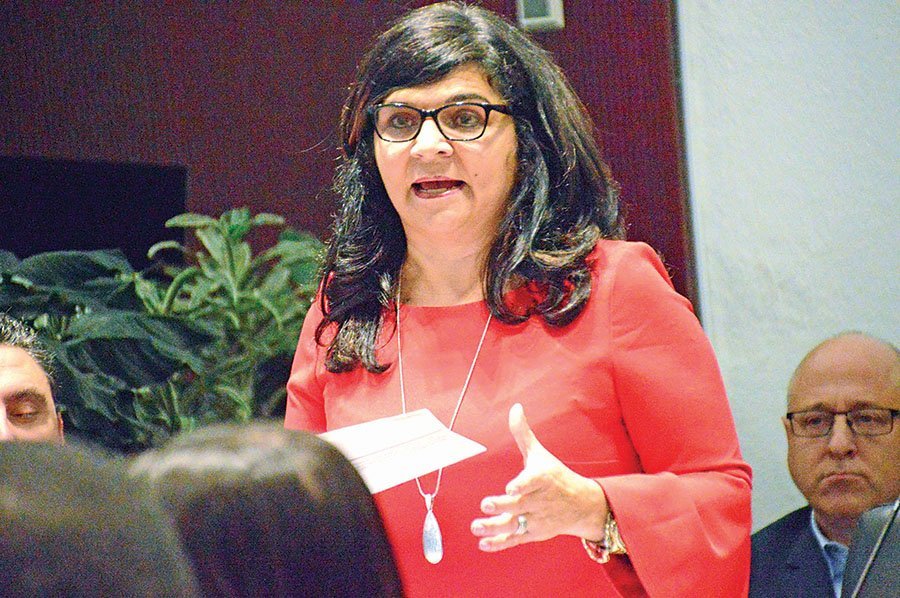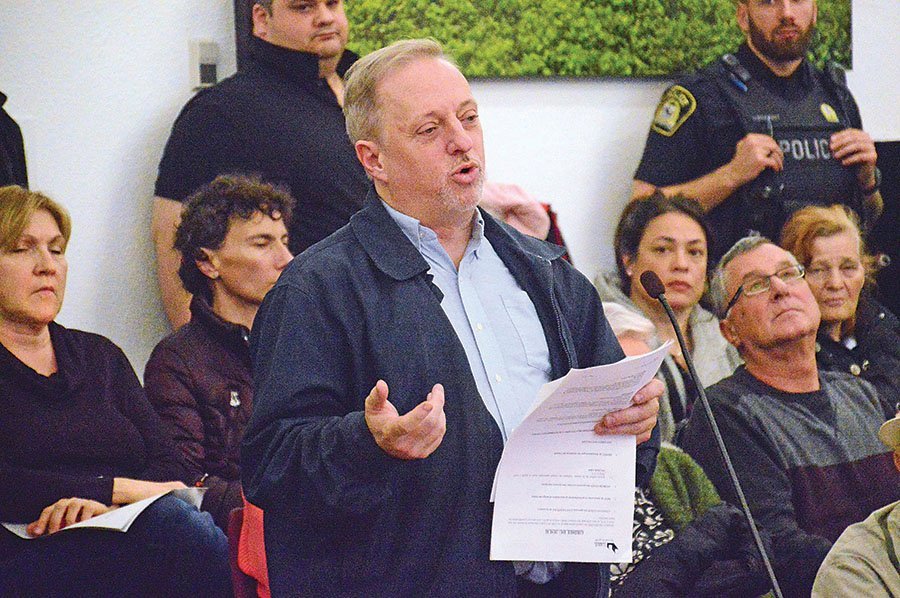
Martin C. Barry
Laval’s blue collar workers had a special surprise in store for those attending the monthly city council meeting on May 1 – a noisy May Day demonstration that left Mayor Marc Demers perplexed as he tried to understand the union’s underlying motive.
A noisy evening
“I am somewhat surprised to hear this kind of noise this evening,” Demers said at the beginning of the meeting, while speaking above the din being generated outside by the workers. He noted that a collective agreement with the workers was signed recently after being accepted by a large percentage of the union membership.
According to the mayor, the terms of the collective agreement included a good number of concessions by the city, including more hirings and salary increases. He apologized for the noise, saying it made the proceedings more difficult, but that there was nothing that could be done.
City council passes Pontic Genocide resolution
During a portion of the meeting reserved for city councillors’ announcements, Chomedey councillor Aglaia Revelakis presented a resolution to have the Pontic Greek Genocide recognized by the City of Laval, just as many cities in Quebec, Canada and the world have already. The resolution was unanimously adopted following extensive efforts by Revelakis.
“Today, we officially recognize and commemorate the memory of those who were exterminated, massacred or deported from their native land and whose children and grandchildren now live in Laval,” she said to a group of representatives from the Hellenic community following the council meeting. “This is a solemn and historic moment for you, who now participate in our Canadian society,” she added.

EV subsidy criticized
During the public question period, Benoit Blanchard questioned city council’s recent decision to offer a $2,000 subsidy to buyers of electric vehicles. “I wonder if you understand who this subsidy will actually be benefiting,” he said, maintaining that those who currently buy electric vehicles are households which are economically well off and that already own two or more vehicles.
“That’s understandable, since with an electric vehicle you can’t plan a trip to the Saguenay or to Gaspésie. Going to Toronto, you might agree, it takes too much time to recharge when half-way there. And so that we might understand each other, I’m not against the environment. Hydrogen-driven cars are coming, and I intend to be among the first to buy one whether there’s a subsidy or not.

The cost per household
“But taking into account that this subsidy is being launched on the basis of municipal taxes,” he continued, “I would imagine that, if the provincial government reaches its sales goals which are unrealistic, we’re talking about $200 per household that it is going to cost to finance this subsidy. However, for a family that has difficulty having both ends meet, what does $200 represent? It’s $200 less for them to spend.” He asked Mayor Marc whether these aspects were taken into consideration when deciding to create the subsidy.
Mayor defends subsidy
Responding, Mayor Demers insisted that money for the subsidy is not coming from taxpayers. As he explained, a law governing a special tax imposed for the recovery of greenhouse gases makes it mandatory to re-use the money for the further reduction of greenhouse gases.
“Yes, the vehicles are more and more efficient in terms of their autonomy,” Demers said, noting the City of Laval’s support for the installation of new electric charging stations and that “the government of Quebec is coming along with a policy for rapid electric charging station a little bit everywhere in the province.
“So what’s happening goes beyond the City of Laval since it is something involving the province.” The mayor went on to say, “When I see the increase in the cost of gas over just the last two days, I am even more convinced that we made the right decision.”
Local farm producers pleased
Also during question period, Gilles Lacroix, an agricultural producer from Laval, noted that in 1988 local agricultural producers signed an agreement with the City of Laval decreeing that 28 per cent of the island’s territory would be dedicated to agricultural activities.
According to Lacroix, local agriculturalists are pleased with the current municipal administration. He also thanked the mayor and council for adopting a buy-local policy that encourages Laval residents to purchase agricultural products grown on Laval’s territory.



